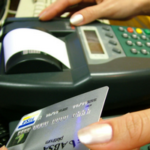The Bank of England – a fintech company?
| 20-04-2018 | treasuryXL |
 The Old Lady has a long history – the second oldest central bank, who has always kept the market in check. Whilst the financial Big Bang of 1986 changed the landscape in the Square Mile, her power and influence are still very evident. On Wednesday, she surprised the banking market by granting direct access to her interbank payments system to a Fintech company. This means that they can process their payments without having to use a commercial bank as an intermediary. What is the motivation for this step and what are the consequences?
The Old Lady has a long history – the second oldest central bank, who has always kept the market in check. Whilst the financial Big Bang of 1986 changed the landscape in the Square Mile, her power and influence are still very evident. On Wednesday, she surprised the banking market by granting direct access to her interbank payments system to a Fintech company. This means that they can process their payments without having to use a commercial bank as an intermediary. What is the motivation for this step and what are the consequences?
Transferwise is a peer-to-peer money transfer service with its main head office in London, whilst being based in Estonia. Turnover per month reached in excess of EUR 1 billion in May 2017. They have developed a money transfer systems that reduces the amount of cross border payments but trying to match supply and demand in different countries. By reducing the actual number of cross border payments and using mid-rates for FX calculations, they are able to offer a competitive alternative to traditional bank transfers.
They have now be granted direct access via the Faster Payments Scheme to the Real Time Gross Settlement system run by the Bank of England. Allowing direct settlement will lead to reductions in costs whilst, at the same time, speeding up the money transfers. This means that Transferwise can compete evenly with large commercial banks.
The Bank of England stated “by stimulating competition and innovation, we anticipate increased diversity and risk-reducing payment technologies will reinforce financial stability while enhancing customer service.” Fintech is having a clear impact on the revenue of traditional banks in London. A survey by Accenture shows that non banks now account for 14 per cent of the annual revenue in the payment sector.
This is forcing banks to design and adopt new solutions – mainly built around the blockchain. What is remarkable is that the Bank of England appear to be taking a very proactive approach to how the payments market will develop in the future, and recognising the role that Fintech has to offer in this area. They are looking at ways to increase efficiency and transparency in financial markets.
The Bank of England is leading the central bank market in providing new solutions. A policy of first adoption could lead to a huge advantage in the payment transfer market. As these solutions are cross border, other central banks would do well to investigate this trend and come up with their own solutions as soon as possible.
It also provides a counterpoint to MiFID II, and shows how the payments industry could be structured in the future.
If you have any questions, please feel free to contact us.
[button url=”https://www.treasuryxl.com/contact/” text=”Contact us” size=”small” type=”primary” icon=”” external=”1″]
[separator type=”” size=”” icon=””]

 Last week an article appeared on the BBC website about the current situation in Sweden. They have embraced the world of digital payments – cash payments in the retail sector now amount to only 15% of the total, compared to 40% in 2010. But against this resounding success, there is a growing unrest among the elderly and other groups perceived as vulnerable. The majority of the banks in Sweden have stopped customers from withdrawing or paying in cash at the banks. So, what are the consequences in a cashless society and how will digital money perform in the future?
Last week an article appeared on the BBC website about the current situation in Sweden. They have embraced the world of digital payments – cash payments in the retail sector now amount to only 15% of the total, compared to 40% in 2010. But against this resounding success, there is a growing unrest among the elderly and other groups perceived as vulnerable. The majority of the banks in Sweden have stopped customers from withdrawing or paying in cash at the banks. So, what are the consequences in a cashless society and how will digital money perform in the future?

 Traditionally, banks provided the infrastructure to enable payments to take place. Nowadays, there are many different third party online payment services that compete directly with the bank models. We came across an interesting article detailing the rise of a mobile payment platform with a large customer base in China, which is bigger than well-known services such as Paypal. It is part of the Alibaba Group who already have a large presence in Europe via AliExpress – after making a large impact on European online shopping, will they make an impact on the payments systems?
Traditionally, banks provided the infrastructure to enable payments to take place. Nowadays, there are many different third party online payment services that compete directly with the bank models. We came across an interesting article detailing the rise of a mobile payment platform with a large customer base in China, which is bigger than well-known services such as Paypal. It is part of the Alibaba Group who already have a large presence in Europe via AliExpress – after making a large impact on European online shopping, will they make an impact on the payments systems?


